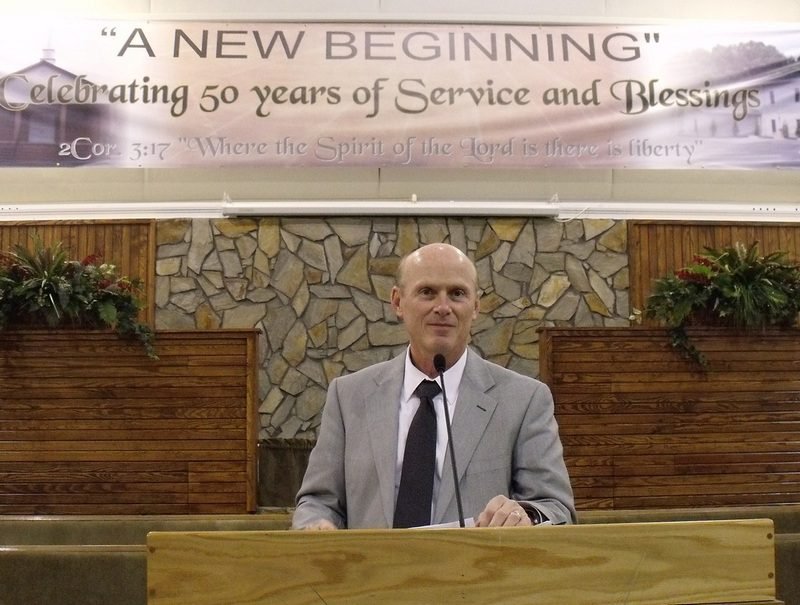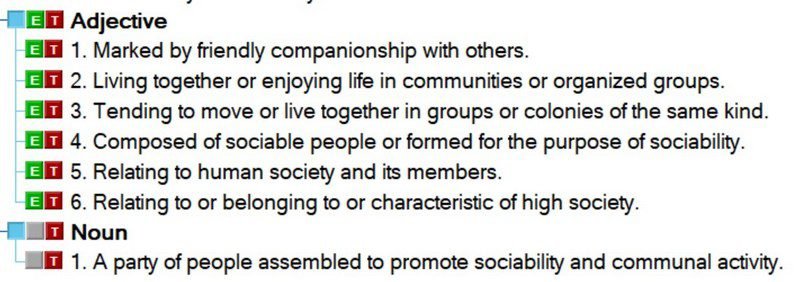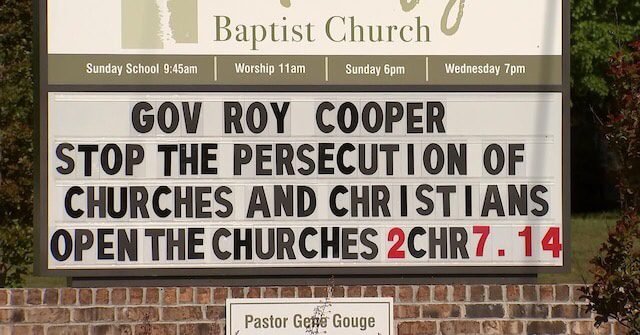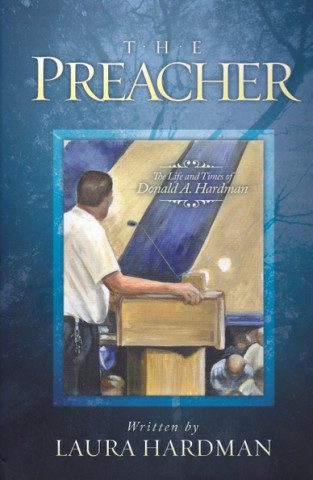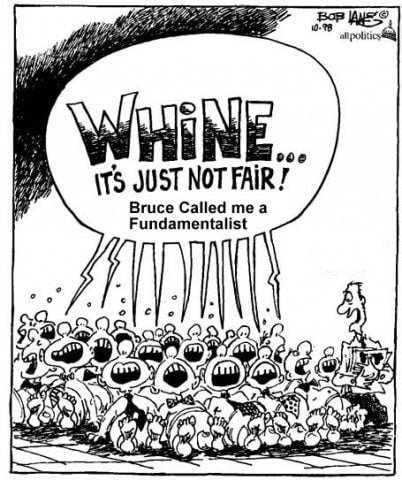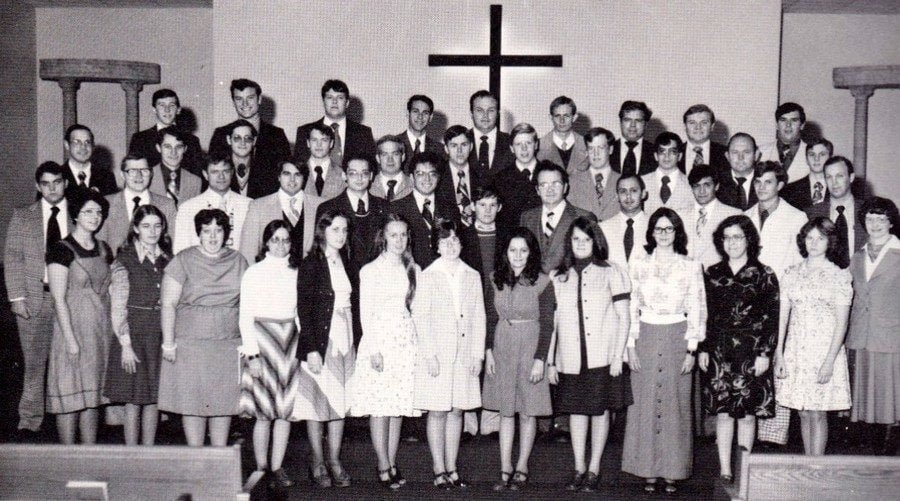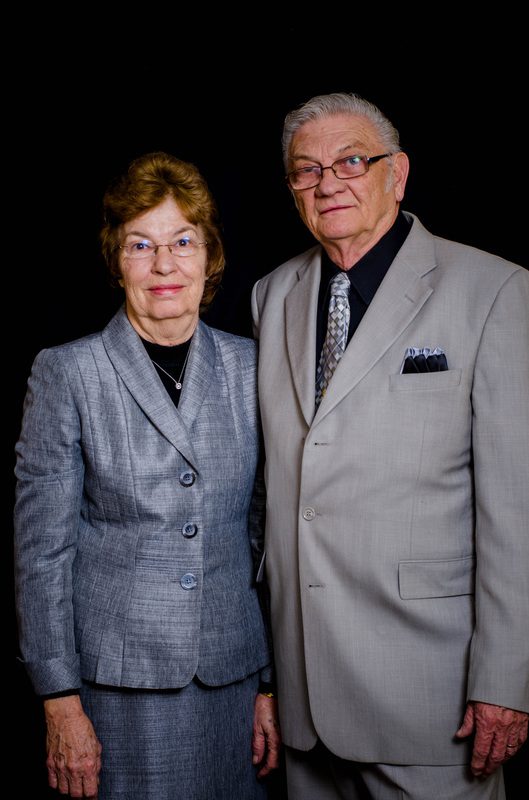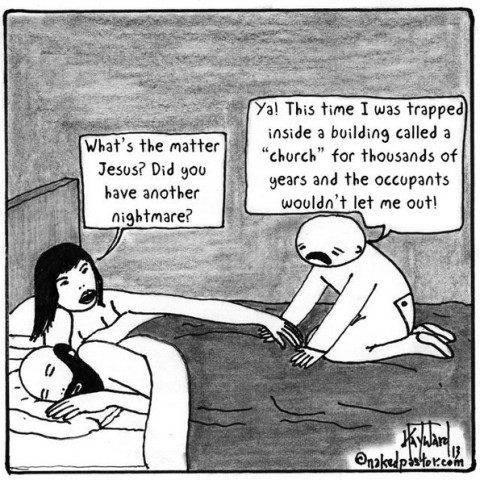
History of the IFB Church Movement
The roots of the Independent Fundamentalist Baptist (IFB) can be traced back to the internecine battles between American Fundamentalists and Modernists in the twentieth century. Denominations such as the American Baptist Convention and the Southern Baptist Convention had become theologically and socially liberal, leading churches and preachers to withdraw from their denominations, becoming independent congregations.
The IFB church movement saw rapid numeric growth in the 1960s-1980s. During this time, many of the largest churches in the United States were IFB congregations. The largest church in America, pastored by the Jack Hyles, a former American Baptist pastor, was First Baptist Church in Hammond, Indiana. Today, the IFB church movement is a shell of what it once was. Few, if any, IFB congregations are on the 100 Largest Churches in America list today. Many of the ginormous IFB churches of yesteryear are now closed. While a student at Midwestern Baptist College in Pontiac, Michigan, I attended nearby Emmanuel Baptist Church. Pastored by IFB pulpiteer Tom Malone, Emmanuel was one the largest churches in the country. Today? It’s doors are shuttered.
The IFB church movement, despite its decline, still remains a force in our culture. Take, for example, the churches that refuse to close their doors during the present pandemic. Many of these rebellious congregations are IFB churches. This should come as no surprise to anyone who follows the IFB church movement. IFB churches tend to be to fiercely independent and exclusionary. IFB churches also typically tend to be anti-government.
What is an IFB Church?
What, exactly, is an IFB church? Attempting to answer this question will bring IFB zealots out of the woodwork, each saying that my description of IFB churches does NOT describe them. Regardless, I am confident that I can generally answer this question.
I stands for Independent
The local, visible church is an independent body of believers who are not associated or affiliated with any denomination. The pastor answers only to God, and to a lesser degree, the church. The church answers to no one but God. Most IFB churches oppose any form of government involvement or intrusion into its affairs. While some IFB churches have deacon boards or elders, almost all of them have a congregational form of government.
F stands for Fundamentalist (or Fundamental)
The independent church is fundamentalist in its doctrine and practice. IFB churches are social and theological fundamentalists. (see Are Evangelicals Fundamentalists?) Fundamentalists adhere to an external code of conduct, often called church standards. The Bible, or should I say the pastor’s interpretation of the Bible, is the rule by which church members are expected to live. IFB churches spend a significant amount of time preaching and teaching about how the pastor expects people to live.
IFB churches are also theological fundamentalists. They adhere to a certain and specific theological standard, a standard by which all other Christians and denominations are judged. Every IFB pastor and church believes things such as:
- The inspiration, infallibility, and inerrancy of the Bible
- The sinfulness, depravity of man
- The deity of Christ
- The virgin birth of Christ
- The blood atonement of Christ for man’s sin
- The resurrection of Christ from the dead
- The second coming of Christ
- Separation from the world
- Salvation from sin is by and through Christ alone
- Personal responsibility to share the gospel with sinners
- Heaven and hell are literal places
- Hierarchical authority (God, Jesus, church, pastor, husband, wife)
- Autonomy and independence of the local church
I am sure there are other doctrines that could be added to this list, but the list above is a concise statement of ALL things an IFB church and pastor must believe to be considered an IFB church.
B stands for Baptist
IFB congregations are Baptist churches adhering to the ecclesiology and theology mentioned above. Some IFB churches are landmark Baptists or Baptist briders. They believe the Baptist church is the true church and all other churches are false churches. John the Baptist baptized Jesus, which made him a Baptist, and the first churches established by the Baptist apostles were Baptist churches. Churches like this go to great lengths to prove that their Baptist lineage dates all the way back to John the Baptist, Jesus, and the Apostles. (See The Trail of Blood by J.M. Carroll.)
Other IFB churches and pastors believe that Baptist ecclesiology and theology are what the Bible clearly teaches. They grudgingly admit that other denominations “might” be Christian too, but they are quick to say, “why be a part of a bastardized form of Christianity when you can have the real deal.”
Some Southern Baptist churches are IFB. They are Southern Baptist in name only. It is not uncommon for an IFB pastor to pastor a Southern Baptist church with the intent of pulling the church out of the Southern Baptist Convention. Because of this, often Southern Baptist churches will reject résumés from pastors with an IFB background. Southern Baptist area missionaries warn churches about pernicious IFB pastors who desire to take over churches and pull the churches out of the convention.
The Societal Structure of IFB Churches
To properly understand the Independent Fundamentalist Baptist IFB church movement, you must first understand the IFB concept of camps. In the IFB, a camp is the tribe to which you belong. It is a membership group that is defined by such things as what Bible version is considered the “true” Word of God, what college the pastor attended, approval or disapproval of Calvinism, open or closed communion, or ecclesiastical, personal, and secondary separation. Many IFB camps will have multiple “positions” that define their group, and admission to the group is dependent on fidelity to these positions. Many pastors and churches belong to more than one camp.
IFB churches, colleges, parachurch organizations, evangelists, missionaries, and pastors are quick to state that they are totally independent of any authority or control but God. Like Churches of Christ, the IFB church movement is anti-denomination, and any suggestion that they are a denomination brings outrage and denunciation.
Every IFB church, pastor, and college has what I call a camp identity. While they claim to be Independent, their identity is closely connected to the people, groups, and institutions they associate with.
Some churches and pastors group around colleges such as Bob Jones University, Pensacola Christian College, Cedarville University, Baptist Bible College, The Crown College, Maranatha Baptist University, Texas Independent Baptist Seminary, West Coast Baptist College, Massillon Baptist College, or Hyles Anderson College. Others coalesce around specific doctrinal beliefs such as Sovereign Grace Baptists, Association of Reformed Baptist Churches in America, or the Fellowship of Independent Reformed Evangelical Churches. Some, such as Missionary Baptists and Landmark Baptists group around certain ecclesiastical beliefs. Others group around missionary endeavors. There are also countless churches that are IFB churches — churches such as John MacArthur’s Grace Community Church — but refuse to claim the IFB moniker. The Bible church movement, IFB in every way but the name, has fellowship groups such as The Independent Fundamental Churches of America.
Some of these groups will likely object to being considered the same as other IFB groups. Reformed and Sovereign Grace Baptists will most certainly resent being talked about in the same discussion as the Sword of the Lord and Jack Hyles. However, many Reformed and Sovereign Grace Baptist pastors come from IFB backgrounds. While certain aspects of their theology might have changed, much of the IFB methodology and thinking remains. Some of the most arrogant, mean-spirited pastors I ever met were Sovereign Grace or Reformed Baptist pastors. They may have been five-point Calvinists, but they were in every other way Independent Fundamentalist Baptists.
Most people don’t know that groups such the Southern Baptist Convention and the General Association of Regular Baptist Churches are really fellowship groups of like-minded pastors and churches. While they have many of the hallmarks of a denomination, their churches and pastors remain, for the most part, independent, under no authority but the local church.
IFB churches and pastors trumpet their independent nature and, as their history has clearly shown, this independence has resulted in horrible abuse and scandal. But, despite their claim of independence, IFB churches and pastors are quite denominational and territorial. They tend to group together in their various camps, only supporting churches, colleges, pastors, evangelists, and missionaries who are in their respective camps.
In 1983, I started the Somerset Baptist Church in Somerset, Ohio. I contacted Gene Milioni, then the pastor of Trinity Baptist Church — the church where I was saved and called to preach — and asked him about the church supporting us financially. Milioni asked me if I was going to become a part of the Ohio Baptist Bible Fellowship. He wanted to know if the church was going to be a BBF church. I told Gene no, and he told me that I could expect no support from Trinity unless I was willing to be a BBF pastor and church. I ran into similar problems with other pastors who demanded I be part of their camp in order to receive help.
Only one church financially supported me: First Baptist Church in Dresden, Ohio. First Baptist, pastored by Midwestern Baptist College grad Mark Kruchkow, sent me $50 a month for a year or so. Every other dime of startup money came from my own pocket or the pockets of family members. I learned right away what it meant to be a true Independent Fundamentalist Baptist.
Over the years, I floated in and out of various IFB camps. I attended Ohio Baptist Bible Fellowship meetings, Midwestern Baptist College meetings, Massillon Baptist College meetings, Sword of the Lord conferences, Bill Rice Ranch rallies, and the now-defunct Buckeye Independent Baptist Fellowship. For a few years, I attended a gathering of Calvinistic Baptist pastors called the Pastor’s Clinic in Mansfield Ohio. When I pastored in Texas, I fellowshipped with like-minded Sovereign Grace Baptist pastors.
Every group demanded something from me, be it money, commitment, or fidelity to certain beliefs. If I were part of the group, I was expected to support the colleges, churches, pastors, evangelists, and missionaries the group approved of. Stepping beyond these approved entities brought disapproval, distance, and censure.
The next time an IFB preacher tries to tell you he is an INDEPENDENT Baptist, I hope you will remember this post. Take a look at the colleges, missionaries, churches, and pastors he supports. It won’t take you long to figure out what camp he is in, and once you figure out his camp, you will know what he believes and considers important. The old adage, birds of a feather flock together, is certainly true when it comes to the Independent Fundamentalist Baptist church movement.
Is There a Difference Between the IFB and New IFB?
Several years ago, Steven Anderson, pastor of Faithful Word Baptist Church in Tempe, Arizona, started group called the New IFB. (Please see Understanding Steven Anderson, Pastor of Faithful Word Baptist Church, Tempe, Arizona and James Ach Says Steven Anderson Isn’t Really IFB.) Put off by perceived “liberalness” within the IFB church movement, Anderson started his own fellowship group of likeminded churches. While the NEW IFB has distinctives that differentiate it from run-of-the-mill IFB churches, the differences are inconsequential. Like it or not, Anderson is an IFB pastor.
In a post titled, Warning: Law of Liberty Baptist Church in Jacksonville, FL. Teaches False New IFB teaching, Joshua Lindsey, the son of an IFB pastor, attempted to delineate the differences between IFB and New IFB churches. As I read Lindsey’s post, I had to snicker. I thought, “what a selective explanation of the differences between the two groups.” Typical manipulation of facts to achieve the desired conclusion. Many within the IFB church movement hate Anderson. He is a nasty piece of work, so I understand why IFB preachers and churches want to distance themselves from Anderson. However, when the noise is stripped away, I see very little difference between the New IFB and the IFB. Sorry, IFB preachers, Anderson is your crazy uncle, and as anyone who follows the IFB church movement knows, there are plenty of crazy uncles to go around.
Conclusion
The IFB church movement will remain very much a part of the American religious landscape. Yes, IFB churches are, for the most part, dying, but the movement is a long way away from coding. These churches will remain anti-cultural institutions, attracting people looking for what they perceive is old-time or old-fashioned Christianity. (Please see What Independent Baptists Mean When They Use the Phrase “Old-Fashioned” and “Old-Fashioned” Preaching: Calling Sin Sin, Stepping on Toes, And Naming Names.) As the world continues its slide towards secularism, IFB churches will promote themselves as shelters for people seeking safety and protection from the “world.” Want the Christianity of the 1950s? Visit your local IFB church.
Bruce Gerencser, 68, lives in rural Northwest Ohio with his wife of 47 years. He and his wife have six grown children and sixteen grandchildren. Bruce pastored Evangelical churches for twenty-five years in Ohio, Texas, and Michigan. Bruce left the ministry in 2005, and in 2008 he left Christianity. Bruce is now a humanist and an atheist.
Your comments are welcome and appreciated. All first-time comments are moderated. Please read the commenting rules before commenting.
You can email Bruce via the Contact Form.


